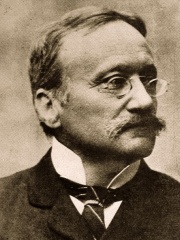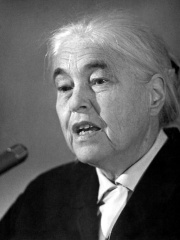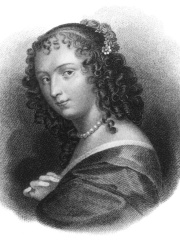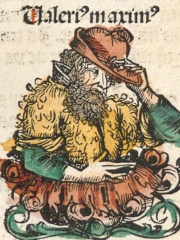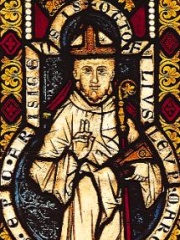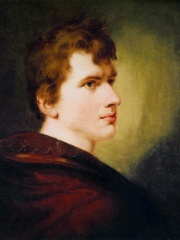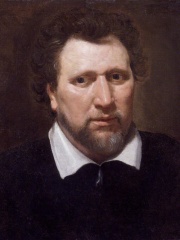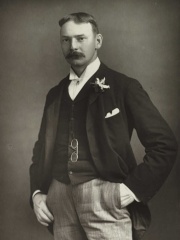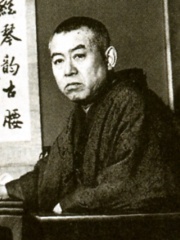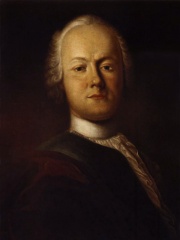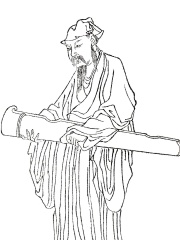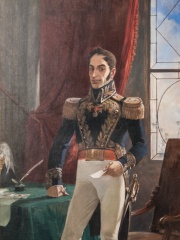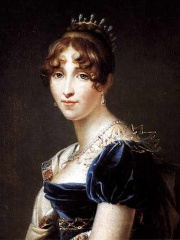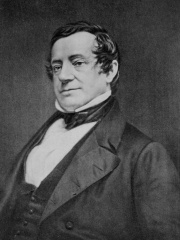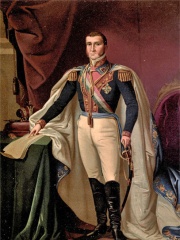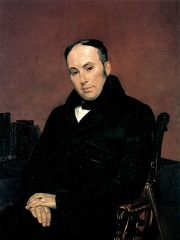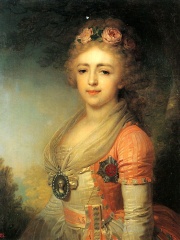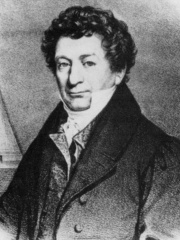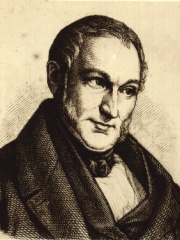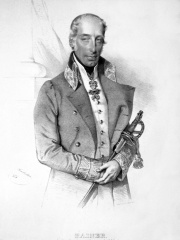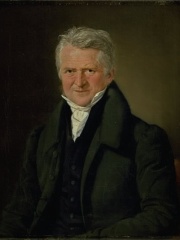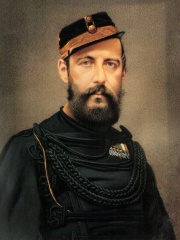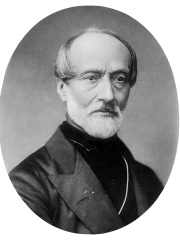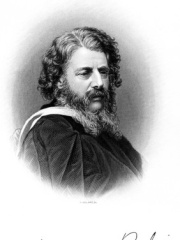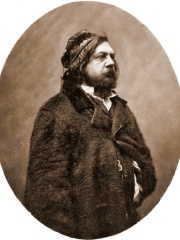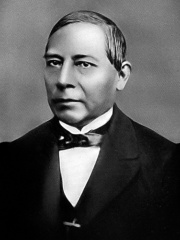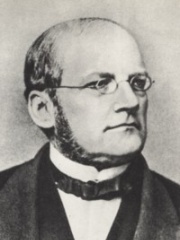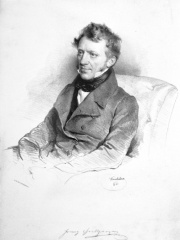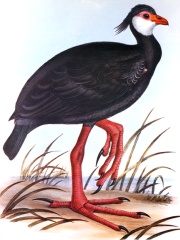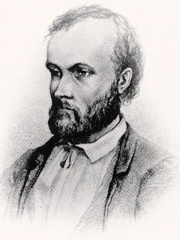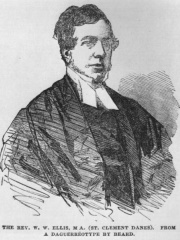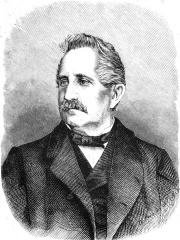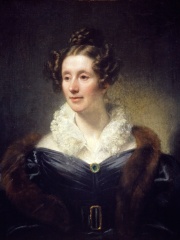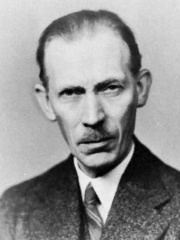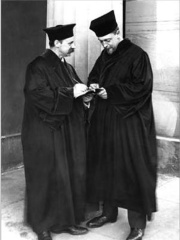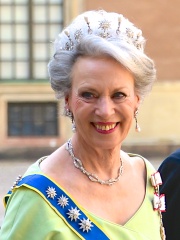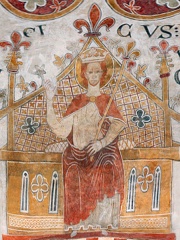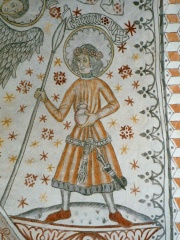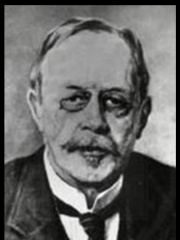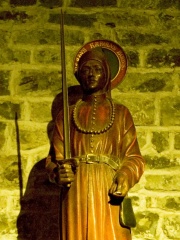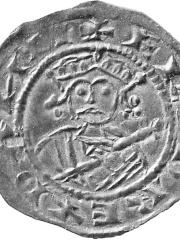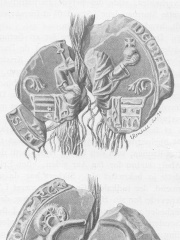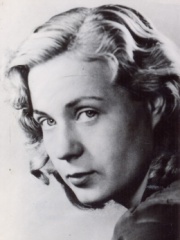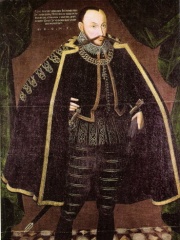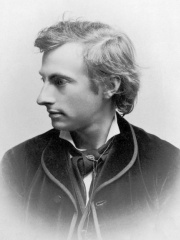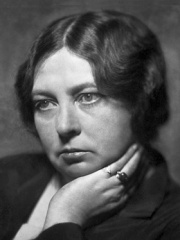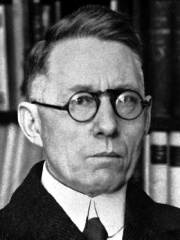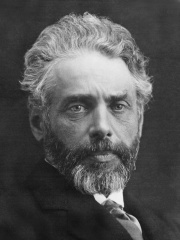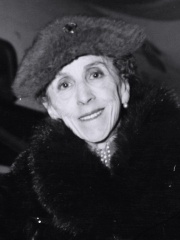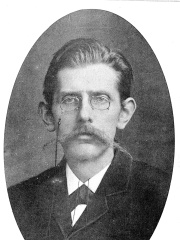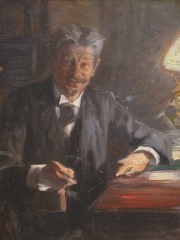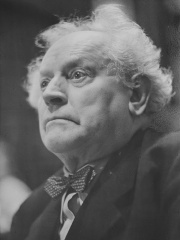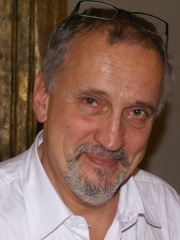WRITER
N. F. S. Grundtvig
1783 - 1872
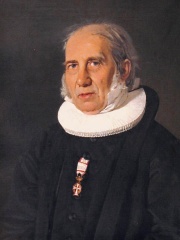
 N. F. S. Grundtvig
N. F. S. Grundtvig
Nikolaj Frederik Severin Grundtvig (Danish: [ˈne̝kolɑjˀ ˈfʁeðˀʁek ˈse̝vəʁiˀn ˈkʁɔntvi, - ˈfʁæðˀʁæk -]; 8 September 1783 – 2 September 1872), most often referred to as N. F. S. Grundtvig, was a Danish pastor, author, poet, philosopher, historian, teacher and politician. He was one of the most influential people in Danish history, as his philosophy gave rise to a new form of nationalism in the last half of the 19th century. It was steeped in the national literature and supported by deep spirituality. Grundtvig holds a unique position in the cultural history of his country. Read more on Wikipedia
His biography is available in 42 different languages on Wikipedia (up from 41 in 2024). N. F. S. Grundtvig is the 783rd most popular writer (up from 910th in 2024), the 93rd most popular biography from Denmark (up from 101st in 2019) and the 7th most popular Danish Writer.
N. F. S. Grundtvig was a Danish theologian and poet who is most famous for his hymns, which he wrote in Danish.
Memorability Metrics
Page views of N. F. S. Grundtvig by language
Among WRITERS
Among writers, N. F. S. Grundtvig ranks 783 out of 7,302. Before him are Arrigo Boito, Anna Seghers, Ninon de l'Enclos, Valerius Maximus, Otto of Freising, and Achim von Arnim. After him are Ben Jonson, Jerome K. Jerome, Jun'ichirō Tanizaki, Gnaeus Naevius, Friedrich Gottlieb Klopstock, and Tao Yuanming.
Most Popular Writers in Wikipedia
Go to all RankingsArrigo Boito
1842 - 1918
HPI: 69.79
Rank: 777
Anna Seghers
1900 - 1983
HPI: 69.78
Rank: 778
Ninon de l'Enclos
1620 - 1705
HPI: 69.75
Rank: 779
Valerius Maximus
100 BC - 100
HPI: 69.73
Rank: 780
Otto of Freising
1114 - 1158
HPI: 69.72
Rank: 781
Achim von Arnim
1781 - 1831
HPI: 69.71
Rank: 782
N. F. S. Grundtvig
1783 - 1872
HPI: 69.71
Rank: 783
Ben Jonson
1572 - 1637
HPI: 69.70
Rank: 784
Jerome K. Jerome
1859 - 1927
HPI: 69.70
Rank: 785
Jun'ichirō Tanizaki
1886 - 1965
HPI: 69.67
Rank: 786
Gnaeus Naevius
275 BC - 201 BC
HPI: 69.65
Rank: 787
Friedrich Gottlieb Klopstock
1724 - 1803
HPI: 69.65
Rank: 788
Tao Yuanming
365 - 427
HPI: 69.63
Rank: 789
Contemporaries
Among people born in 1783, N. F. S. Grundtvig ranks 6. Before him are Stendhal, Simón Bolívar, Hortense de Beauharnais, Washington Irving, and Agustín de Iturbide. After him are Vasily Zhukovsky, Grand Duchess Alexandra Pavlovna of Russia, Friedrich Sertürner, Johann Heinrich von Thünen, Archduke Rainer Joseph of Austria, and Christoffer Wilhelm Eckersberg. Among people deceased in 1872, N. F. S. Grundtvig ranks 10. Before him are Charles XV of Sweden, Giuseppe Mazzini, William John Macquorn Rankine, Théophile Gautier, Benito Juárez, and Stanisław Moniuszko. After him are Franz Grillparzer, George Robert Gray, Aleksis Kivi, William Webb Ellis, Ljudevit Gaj, and Mary Somerville.
Others Born in 1783
Go to all RankingsStendhal
WRITER
1783 - 1842
HPI: 83.83
Rank: 1
Simón Bolívar
POLITICIAN
1783 - 1830
HPI: 83.41
Rank: 2
Hortense de Beauharnais
COMPANION
1783 - 1837
HPI: 74.83
Rank: 3
Washington Irving
WRITER
1783 - 1859
HPI: 71.85
Rank: 4
Agustín de Iturbide
POLITICIAN
1783 - 1824
HPI: 70.01
Rank: 5
N. F. S. Grundtvig
WRITER
1783 - 1872
HPI: 69.71
Rank: 6
Vasily Zhukovsky
WRITER
1783 - 1852
HPI: 68.23
Rank: 7
Grand Duchess Alexandra Pavlovna of Russia
POLITICIAN
1783 - 1801
HPI: 68.18
Rank: 8
Friedrich Sertürner
CHEMIST
1783 - 1841
HPI: 68.10
Rank: 9
Johann Heinrich von Thünen
ECONOMIST
1783 - 1850
HPI: 68.00
Rank: 10
Archduke Rainer Joseph of Austria
POLITICIAN
1783 - 1853
HPI: 67.04
Rank: 11
Christoffer Wilhelm Eckersberg
PAINTER
1783 - 1853
HPI: 66.88
Rank: 12
Others Deceased in 1872
Go to all RankingsCharles XV of Sweden
POLITICIAN
1826 - 1872
HPI: 78.39
Rank: 4
Giuseppe Mazzini
POLITICIAN
1805 - 1872
HPI: 77.48
Rank: 5
William John Macquorn Rankine
ENGINEER
1820 - 1872
HPI: 76.98
Rank: 6
Théophile Gautier
WRITER
1811 - 1872
HPI: 74.57
Rank: 7
Benito Juárez
POLITICIAN
1806 - 1872
HPI: 72.81
Rank: 8
Stanisław Moniuszko
COMPOSER
1819 - 1872
HPI: 70.02
Rank: 9
N. F. S. Grundtvig
WRITER
1783 - 1872
HPI: 69.71
Rank: 10
Franz Grillparzer
WRITER
1791 - 1872
HPI: 69.19
Rank: 11
George Robert Gray
BIOLOGIST
1808 - 1872
HPI: 67.72
Rank: 12
Aleksis Kivi
WRITER
1834 - 1872
HPI: 67.41
Rank: 13
William Webb Ellis
INVENTOR
1806 - 1872
HPI: 67.24
Rank: 14
Ljudevit Gaj
WRITER
1809 - 1872
HPI: 66.99
Rank: 15
Mary Somerville
ASTRONOMER
1780 - 1872
HPI: 66.27
Rank: 16
In Denmark
Among people born in Denmark, N. F. S. Grundtvig ranks 93 out of 1,032. Before him are Johannes Nicolaus Brønsted (1879), Ejnar Hertzsprung (1873), Princess Benedikte of Denmark (1944), Allan Simonsen (1952), Eric IV of Denmark (1216), and Canute Lavard (1096). After him are Hans Christian Gram (1853), Charles I, Count of Flanders (1083), Eric I of Denmark (1055), Valdemar III of Denmark (1314), Tove Ditlevsen (1917), and John II, Duke of Schleswig-Holstein-Sonderburg (1545).
Others born in Denmark
Go to all RankingsJohannes Nicolaus Brønsted
CHEMIST
1879 - 1947
HPI: 70.11
Rank: 87
Ejnar Hertzsprung
ASTRONOMER
1873 - 1967
HPI: 69.98
Rank: 88
Princess Benedikte of Denmark
POLITICIAN
1944 - Present
HPI: 69.81
Rank: 89
Allan Simonsen
SOCCER PLAYER
1952 - Present
HPI: 69.78
Rank: 90
Eric IV of Denmark
POLITICIAN
1216 - 1250
HPI: 69.76
Rank: 91
Canute Lavard
POLITICIAN
1096 - 1131
HPI: 69.71
Rank: 92
N. F. S. Grundtvig
WRITER
1783 - 1872
HPI: 69.71
Rank: 93
Hans Christian Gram
BIOLOGIST
1853 - 1938
HPI: 69.56
Rank: 94
Charles I, Count of Flanders
RELIGIOUS FIGURE
1083 - 1127
HPI: 69.55
Rank: 95
Eric I of Denmark
POLITICIAN
1055 - 1103
HPI: 69.52
Rank: 96
Valdemar III of Denmark
POLITICIAN
1314 - 1364
HPI: 69.50
Rank: 97
Tove Ditlevsen
WRITER
1917 - 1976
HPI: 69.49
Rank: 98
John II, Duke of Schleswig-Holstein-Sonderburg
POLITICIAN
1545 - 1622
HPI: 69.33
Rank: 99
Among WRITERS In Denmark
Among writers born in Denmark, N. F. S. Grundtvig ranks 7. Before him are Hans Christian Andersen (1805), Karl Adolph Gjellerup (1857), Sigrid Undset (1882), Johannes V. Jensen (1873), Henrik Pontoppidan (1857), and Karen Blixen (1885). After him are Tove Ditlevsen (1917), Jens Peter Jacobsen (1847), Georg Brandes (1842), Sven Hassel (1917), Martin Andersen Nexø (1869), and Jussi Adler-Olsen (1950).
Hans Christian Andersen
1805 - 1875
HPI: 90.14
Rank: 1
Karl Adolph Gjellerup
1857 - 1919
HPI: 79.92
Rank: 2
Sigrid Undset
1882 - 1949
HPI: 78.56
Rank: 3
Johannes V. Jensen
1873 - 1950
HPI: 78.43
Rank: 4
Henrik Pontoppidan
1857 - 1943
HPI: 76.76
Rank: 5
Karen Blixen
1885 - 1962
HPI: 75.85
Rank: 6
N. F. S. Grundtvig
1783 - 1872
HPI: 69.71
Rank: 7
Tove Ditlevsen
1917 - 1976
HPI: 69.49
Rank: 8
Jens Peter Jacobsen
1847 - 1885
HPI: 69.00
Rank: 9
Georg Brandes
1842 - 1927
HPI: 68.98
Rank: 10
Sven Hassel
1917 - 2012
HPI: 68.81
Rank: 11
Martin Andersen Nexø
1869 - 1954
HPI: 67.33
Rank: 12
Jussi Adler-Olsen
1950 - Present
HPI: 67.25
Rank: 13
